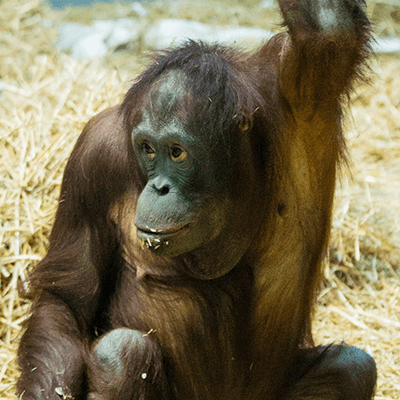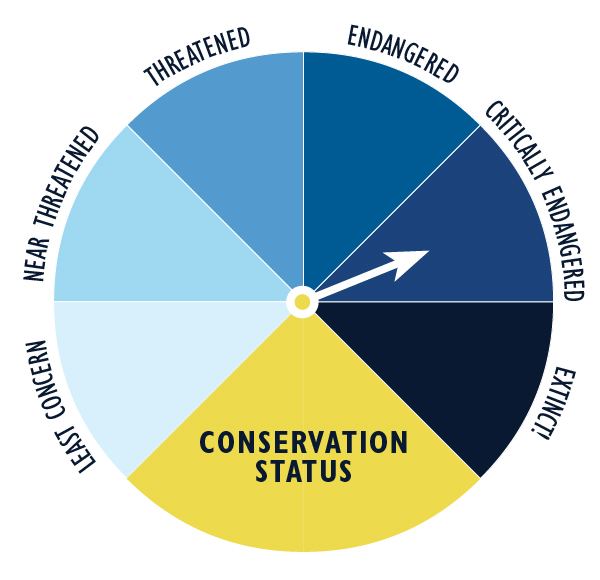
About Bornean Orangutan
The amazing great ape! Bornean orangutans are critically endangered due to the destruction and degradation of their habitats and hunting by humans. By 2025, their population will have decreased over 80% since the early 1970s.
Our Impact
The Henry Vilas Zoo has a proud history of working with the critically endangered Bornean orangutan. We have had the chance to directly impact orangutans in the wild through hands-on work re-introducing orangutans in the wild and helping care for orphaned orangutans in rehabilitation facilities. The zoo is also taking the lead in protecting this amazing species partly through support of research being done globally to save animals from extinction.
The Henry Vilas Zoo is a global leader in orangutan conservation and is leading a partnership of zoos and aquariums nationwide called the Orangutan Saving Animals From Extinction (SAFE) Program. This program is working to lead and support conservation initiatives for the critically endangered Bornean, Sumatran, and Tapanuli orangutans. These programs are critical to finding ways to stop the decline of the species, including working to save the rainforest habitat from deforestation, working to save and care for orangutans either orphaned in the wild or rescued from captivity and working to re-introduce these animals to the wild. SAFE programs were created to foster collaboration and combine the efforts of leading zoos and aquariums with conservation organizations worldwide, in partnership with the Association of Zoos and Aquariums.
Habitat
Bornean orangutans inhabit the lowland and hilly tropical forests of the island of Borneo.
Diet
Bornean orangutans eat over 400 types of food, including fruit, leaves, bark, flowers, and insects. 60% of their diet is made up of fruits, particularly wild figs, and durians, a type of tree fruit.
Family Life
A female will care for her offspring for six to seven years, though females will stay with their mother until their teens to learn valuable parenting skills. Bornean orangutans reach sexual maturity at eight years old, though females won’t typically reproduce until they reach 15 years old. Their reproductive habits make Bornean orangutans one of the slowest breeding mammal species.
Conservation Status
The conservation status of the Bornean Orangutan is classified as critically endangered.
Threats
- Young orangutans may be captured and sold in illegal wildlife trading.
- Conflict with humans and habitat loss threatens the orangutan’s conservation.
- Illegal hunting for meat threatens the lives of orangutans as well.
Facts about Bornean Orangutan
Class:
Mammalia (mammals)Order:
Primates (apes)Family:
Hominidae (great apes)Genus:
Pongo (orangutan)Species:
Pongo pygmaeus (Bornean orangutan)Life Span:
35 – 45 years (wild)Size:
Standing: 3.5 feet (1 m)Weight:
80 – 250 pounds (36 – 113 kg)Arm Span:
Up to 8 feet (2.4 m)
Fun Facts
- When it comes to reproducing, Bornean orangutans take their sweet time! They are the slowest reproducing mammal, producing one baby every five to eight years, on average.
- I’m fine up here! Bornean orangutans rarely come down from their treetop homes.
- Bornean orangutans form groups with the adult male being at the center of their small networks.
- Bornean orangutans are not the best swimmers, making rivers and other bodies of water impassable and limiting their range.